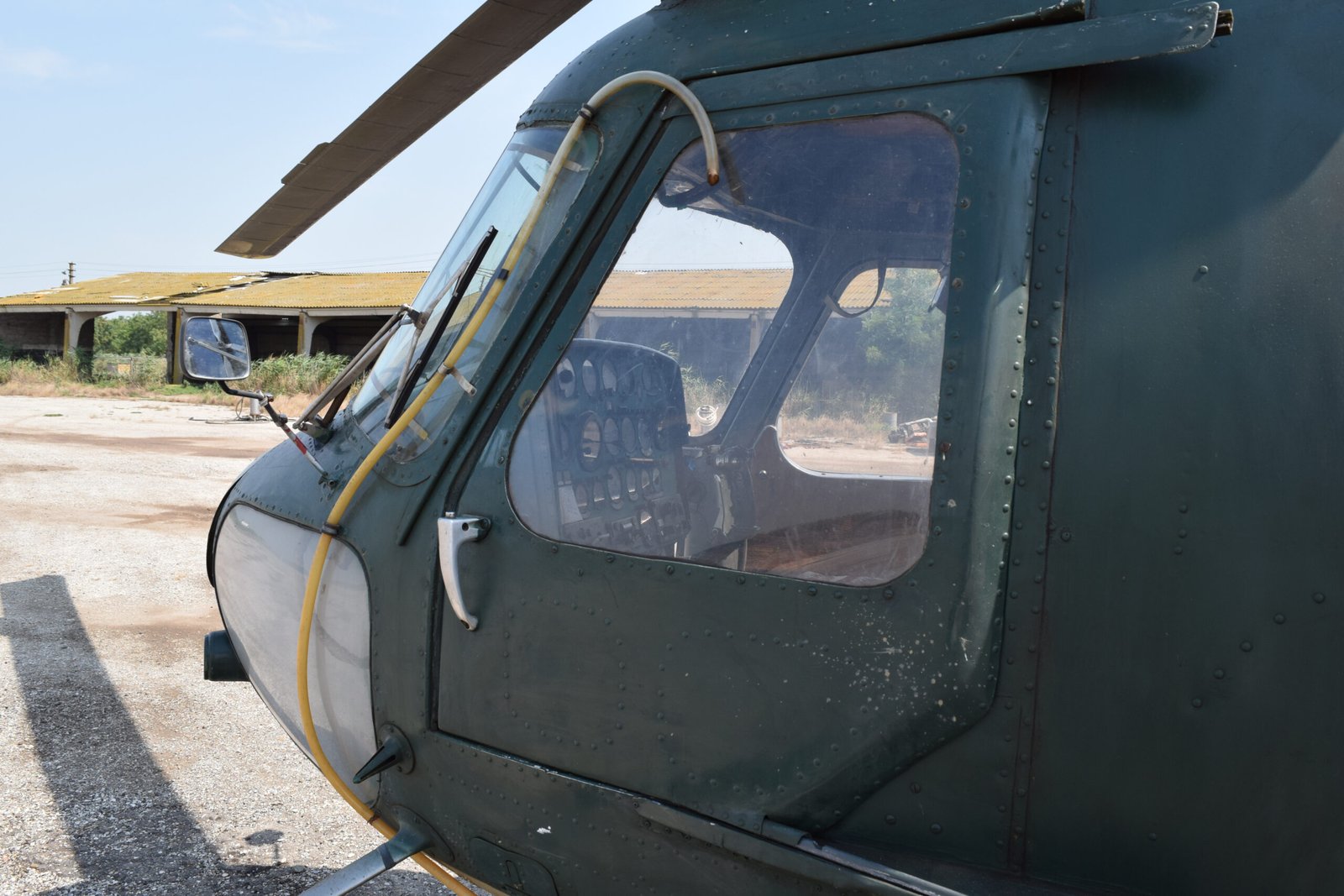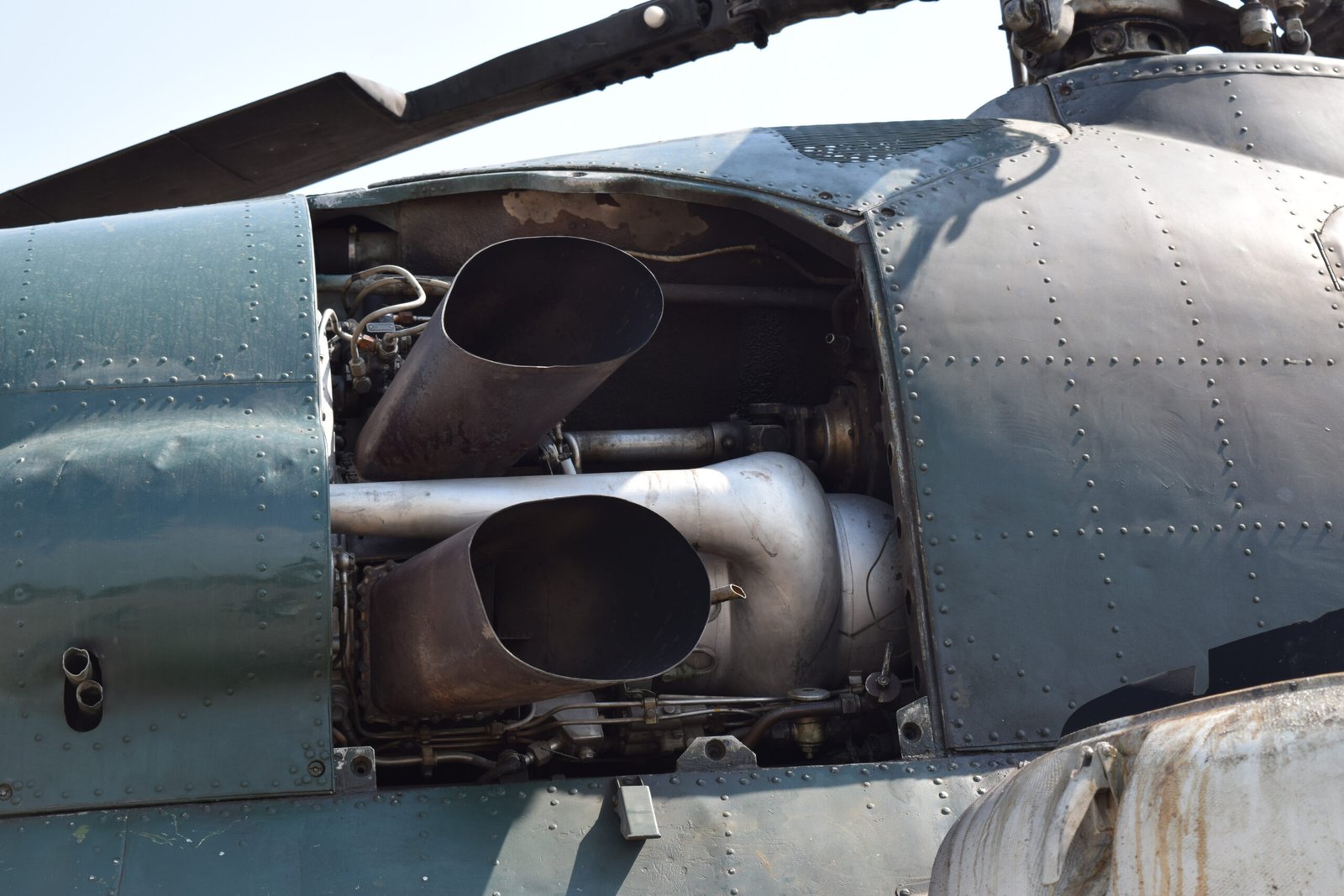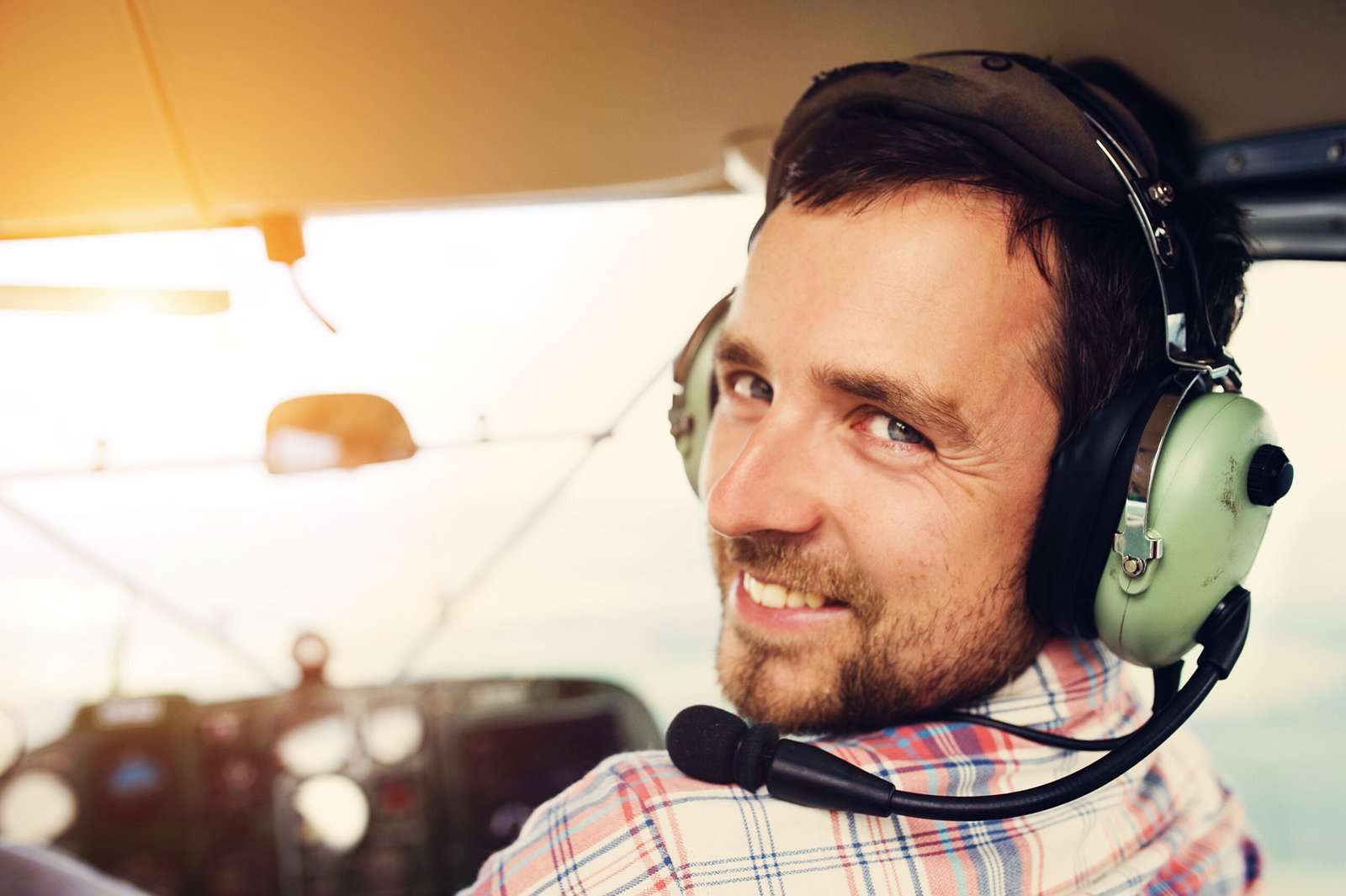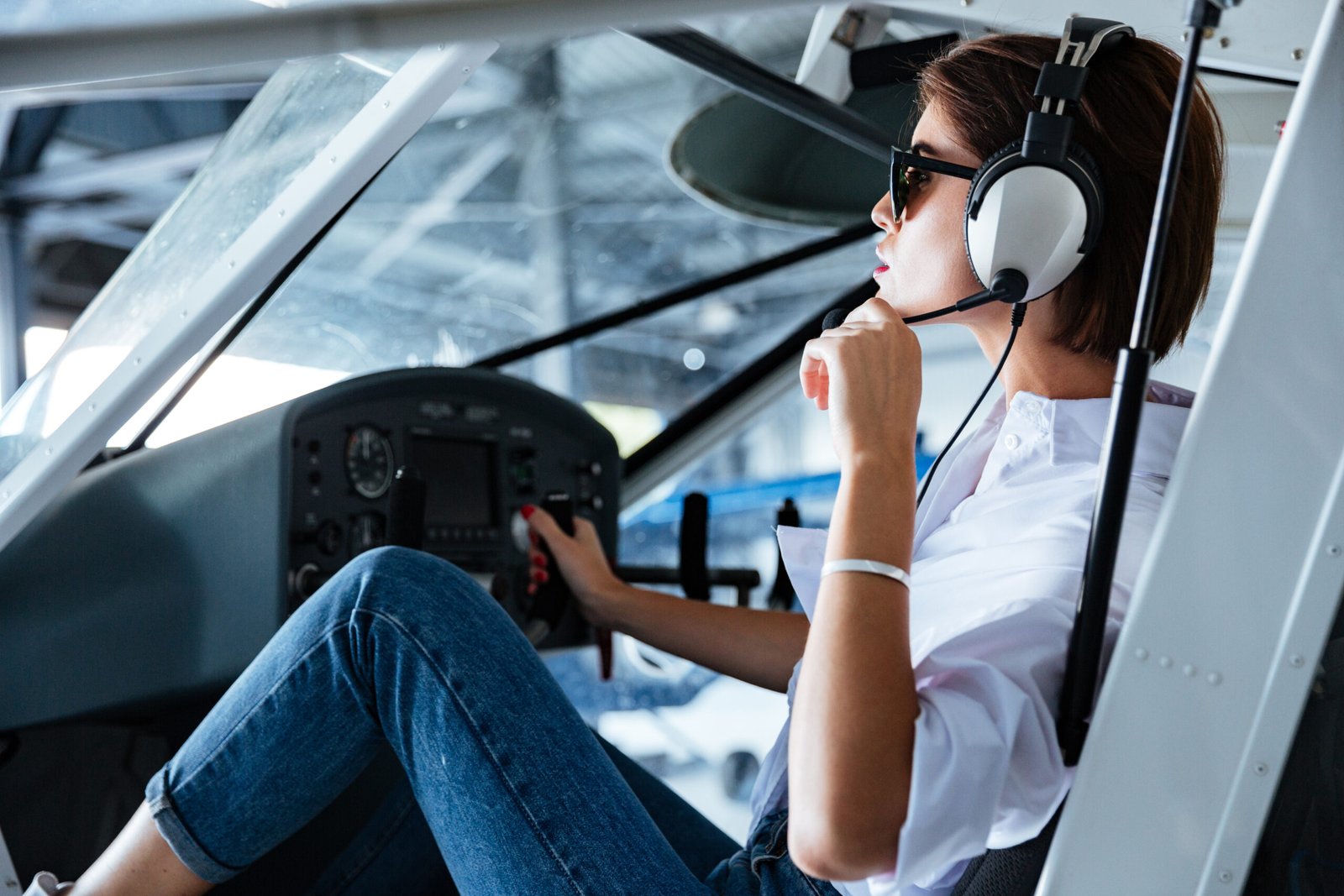Aviation Jobs
Unlocking the Skies: The Impact of Drones on Modern Aviation
In recent years, the aviation sector has undergone a seismic shift, largely driven by advancements in technology. Among these innovations, drones have emerged as game-changers, revolutionizing not only how we think about flying but also how we train future pilots and aviation professionals. This post delves into various facets of modern aviation, highlighting the influence of drones and cutting-edge training methodologies.
Let’s begin with the pivotal role that technology plays in pilot training. Traditional flight schools have embraced simulators to enhance learning experiences. These sophisticated devices replicate real-world flying conditions, allowing aspiring pilots to practice maneuvers without leaving the ground. Simulators enable students to confront challenging scenarios—like inclement weather or equipment failures—in a safe environment, which is integral for building confidence and skill.

For those eager to explore more about aviation or enhance their knowledge, numerous blogs and websites serve as treasure troves of information. Here’s a shortlist of some must-follow resources:
1. **AirlineReporter.com** – Offers insights into airline news and travel tips.
2. **FlyingMag.com** – A comprehensive source for general aviation enthusiasts.
3. **AvWeb.com** – Provides continuous updates on industry trends.
4. **ThePilotReport.com** – Features pilot stories and aircraft reviews.
5. **FliteTest.com** – Focuses on the fun side of flying with DIY drone projects.
Social media platforms are also rich with content for aviation aficionados. Twitter accounts like @AviationWeek provide breaking news while Instagram accounts such as @PilotLife showcase stunning aerial photography paired with personal narratives from pilots around the globe.
For those who prefer structured learning environments, online aviation courses and ground schools are increasingly popular options. Websites like Udemy and Coursera offer specialized courses ranging from basic aerodynamics to advanced navigation techniques—all from the comfort of home! Ground schools prepare students for FAA tests, covering essential topics such as flight regulations and meteorology.
As drones gain traction in both commercial and recreational realms, they are opening up new career pathways within aviation. Industries ranging from agriculture to real estate now employ drone technology for aerial surveys and inspections, creating a demand for certified drone operators. The FAA has established guidelines that govern drone usage in airspace management; thus understanding these regulations is crucial for anyone looking to enter this field.
If you’re interested in pursuing a career as a pilot or drone operator, it’s wise to stay informed about job opportunities available through platforms like Indeed or LinkedIn where many airlines post openings regularly.
For regulatory insights, visit [FAA.gov](https://www.faa.gov), which provides extensive resources related to licensing requirements for pilots as well as guidance on operating drones safely within U.S airspace.
Embracing innovation is key in today’s fast-paced world of aviation where both manned aircraft and unmanned aerial vehicles (UAVs) coexist harmoniously. Drones not only facilitate new operational efficiencies but also inspire creativity across sectors—pushing boundaries previously thought impossible.
To conclude, unlocking the skies involves leveraging technological advances while fostering an engaged community through education—be it via traditional flight training supplemented by simulators or expanding knowledge through diverse online resources. As we continue navigating this transformative era in aviation history, one thing remains clear: embracing change will propel us all higher than ever before!
The Hidden World of Cockpits: A Pilot’s Perspective on Modern Flight
When you think of aviation, the first images that might come to mind are sleek aircraft soaring through azure skies, passengers basking in comfort, or even the bustling activity at an airport. However, there’s a hidden world that many overlook—the cockpit. It’s a sanctuary of technology, training, and skill where pilots transform dreams of flight into reality.
In today’s aviation landscape, technology plays a pivotal role in shaping how pilots are trained and how they operate. Simulators have advanced beyond simple graphics and basic functions; they now offer immersive experiences that closely mimic real-life flying conditions. High-fidelity simulators replicate everything from turbulence to emergency scenarios, allowing aspiring aviators to hone their skills without ever leaving the ground. These simulators not only save time and resources but also provide invaluable training for managing unexpected situations.
For those looking to dive deeper into aviation knowledge, numerous blogs and websites cater to enthusiasts and professionals alike. Among the top choices are **AirlineReporter**, which offers insights directly from industry insiders, and **The Aviation Herald**, known for its detailed accident reports and safety analysis. Social media platforms like Instagram feature accounts such as @flywithcaptainmike showcasing stunning aerial views alongside pilot experiences. On Twitter, follow @AviationWeek for the latest industry news and trends.

Additionally, online courses have revolutionized how we approach learning about aviation. Ground schools like **King Schools** or **MZeroA** provide comprehensive programs covering everything from private pilot licensing to advanced instrument ratings—all accessible from your living room! Many of these courses combine video lessons with interactive quizzes ensuring that students grasp complex subjects effectively.
As the demand for qualified pilots continues to rise in the face of increasing air travel, job opportunities abound across various sectors—commercial airlines, cargo carriers, charter services, or even corporate jets. Organizations such as **Pilot Career Center** offer up-to-date job listings while providing resources for crafting resumes tailored specifically for aviation roles.

With technological advancements reshaping our skies further still is the emergence of drones—unmanned aerial vehicles (UAVs) changing everything from agriculture to photography. Drones are being integrated into commercial operations more than ever before; this means new career paths are emerging within this niche market! For those intrigued by drone piloting, consider exploring certification options through resources provided by organizations like the FAA or specialized drone schools.
Navigating regulations is crucial in both manned and unmanned flight operations. The Federal Aviation Administration’s website is a treasure trove of information—from rules governing pilot certifications to updates on airspace regulations affecting all operators. Bookmarking essential links can simplify staying informed on regulatory changes that could impact flying careers or hobbyist pursuits alike.
In conclusion, aviation is more than just flying; it’s about mastering a blend of technology and skillset that evolves continuously with modern demands. The cockpit encapsulates this journey—a place where rigorous training meets cutting-edge innovation—and it beckons those ready to take on the challenge. Whether you aspire to become a professional pilot navigating traditional routes or explore emerging fields like drone operations, there’s never been a better time to step into this exciting realm!
Sky High: The Evolution of Aviation Technology and Its Future
Aviation has long captivated the human imagination, soaring through the skies and connecting distant corners of the globe. The journey from wood-and-canvas biplanes to today’s sleek jets is a testament to human ingenuity. As we look ahead, it becomes clear that technology will continue to shape how we fly, learn about aviation, and navigate the future of aerial transport.

### Aviation and Technology Training
One of the most remarkable advancements in aviation is the use of flight simulators for training pilots. These state-of-the-art devices offer a safe environment where aspiring aviators can experience various flight scenarios without ever leaving the ground. From turbulence to system failures, simulators provide invaluable hands-on experience while minimizing risks associated with real-life training flights. By incorporating virtual reality (VR) and augmented reality (AR), these training tools are becoming even more immersive, enhancing students’ learning experiences.
### Online Resources for Aviation Enthusiasts
The digital age has birthed a plethora of resources for aviation aficionados. Whether you’re a seasoned pilot or someone simply interested in flight mechanics, there are numerous blogs, websites, and social media platforms dedicated to this fascinating field. Here are some noteworthy mentions:
1. **Airliners.net** – A robust forum for aviation enthusiasts where you can share photos and experiences.
2. **The Points Guy** – Offers insights into maximizing frequent flyer miles while traveling.
3. **Fly Away Simulation** – A hub for flight simulation enthusiasts featuring news on software updates.
4. **Pilot’s Digest** – Covers everything from industry news to tips for aspiring pilots.
5. **Social Media Groups** – Platforms like Facebook have numerous groups such as “Aviation Enthusiasts” where members share stories, news articles, and personal experiences.
These online communities serve as an amazing source of information and inspiration.
### Learning Opportunities: Online Courses & Ground Schools
For those looking to embark on a career in aviation or simply expand their knowledge base, several online courses and ground schools are available today. Organizations like Coursera and Udemy offer comprehensive classes covering topics from aerodynamics to air traffic control procedures. Moreover, institutions like Embry-Riddle Aeronautical University provide specialized programs tailored for both new pilots and industry professionals seeking certification or advancement in their careers.
With remote learning now more accessible than ever, aspiring pilots can balance education with other commitments without compromising quality.
### Career Pathways: Becoming a Pilot

Pursuing a career as a pilot is an exciting prospect that requires dedication and skill development. After completing appropriate training programs—including Private Pilot License (PPL) or Airline Transport Pilot License (ATPL)—the next step often involves accumulating flight hours through various jobs such as flight instructing or flying charters before landing positions with airlines or cargo companies.
The demand for qualified pilots continues to grow globally—an encouraging sign for those considering this profession!
### The Rise of Drones
In recent years, drones have transformed not only recreational flying but also commercial applications within aviation sectors such as delivery services, agriculture monitoring, and surveillance operations. As regulations evolve—thanks largely to guidance from organizations like the FAA—the drone industry is expected to expand exponentially in various sectors while ensuring safety remains paramount.
#### Final Thoughts
As we gaze into the horizon of aviation technology‘s future landscape feels promising yet unpredictable; however one thing remains certain—the blend between innovation-driven solutions alongside traditional methodologies will define how we navigate our skies moving forward! For anyone passionate about flight—whether through piloting aircraft themselves or embracing technological advances—a world full of opportunities awaits!
From Pilot to Passenger: Understanding the Evolution of Aviation Safety
Aviation safety has come a long way since the early days of flight. As technology advances, so does our understanding of how to keep both pilots and passengers safe in the skies. Today, aspiring aviators can benefit from a wealth of resources, including online aviation courses and ground schools that equip them with vital knowledge and skills. Let’s dive deeper into these options and explore how they contribute to the evolution of aviation safety.

Online aviation courses have revolutionized pilot training by making education more accessible than ever. Platforms like Coursera, Udemy, and specialized aviation sites offer programs covering everything from aerodynamics to navigation systems. These courses are designed for busy individuals who may not be able to attend traditional classroom sessions. By providing flexibility, learners can study at their own pace while honing essential piloting skills.
Ground schools play an equally crucial role in preparing pilots for the skies. Typically held in-person or through hybrid models, these schools provide a structured environment where students learn about aircraft systems, weather patterns, and regulations set forth by organizations like the FAA (Federal Aviation Administration). Ground school is particularly significant because it lays the foundation for safe flying practices; it teaches students about risk management—how to assess potential hazards before they lead to incidents.
As you delve deeper into your journey towards becoming a pilot, connecting with others in the field can be incredibly beneficial. Aviation forums and communities serve as invaluable resources for both novice and experienced pilots alike. Websites like PPRuNe (Professional Pilots Rumour Network) or AvGeek forums allow users to ask questions, share experiences, and exchange tips on various aspects of flying—whether it’s dealing with air traffic control or understanding complex regulations.
Moreover, engaging with fellow enthusiasts fosters camaraderie within the aviation community. Online platforms such as Reddit’s r/flying or Facebook groups dedicated to specific aircraft types offer real-time discussions about trends in aviation safety procedures or updates on new technologies. Such interactions often lead to insights that could significantly enhance one’s knowledge base while emphasizing a culture of learning among peers.
In addition to forums, several blogs and websites cater specifically to those interested in all things aviation-related. For instance:
1. **AirlineReporter** – Focused on airline news and travel experiences.
2. **FlightGlobal** – Offers extensive coverage on industry happenings.
3. **The Flying Magazine** – A staple for general aviation enthusiasts.
4. **AOPA (Aircraft Owners and Pilots Association)** – Provides resources for pilots at all levels.
Don’t overlook social media either! Twitter accounts like @FltOps (@FlightOperations) provide timely updates about operational changes while Instagram profiles such as @pilotlife showcase breathtaking views from cockpits around the world.
As we continue evolving our understanding of aviation safety—from innovative training methodologies in ground schools to thriving online communities—the importance of shared knowledge cannot be understated. The tools available today empower aspiring pilots not just with theoretical insights but also foster connections that enhance practical experiences.
Ultimately, whether you’re navigating through an online course or exchanging stories on an aviation forum, one thing remains clear: collective learning elevates our commitment towards ensuring safer skies for everyone—transforming every passenger journey into a testament of progress achieved through collaboration and innovation in this remarkable field called aviation!
The Future of Air Travel: Innovations That Will Change the Skies
As we look toward the horizon, the aviation industry is on the brink of a transformation fueled by technological advancements and innovative thinking. From online education to dynamic communities, there’s a wealth of resources available that will not only enhance pilot training but also elevate air travel as we know it.
*Online Aviation Courses and Ground Schools**
Gone are the days when aspiring pilots had to rely solely on traditional classroom settings. Today, online aviation courses offer unprecedented flexibility and accessibility for students around the globe. Platforms like Aircraft Owners and Pilots Association (AOPA) and Flight Training International provide comprehensive curricula covering everything from basic flight principles to advanced navigation techniques. These courses allow learners to absorb material at their own pace, which is particularly beneficial for those juggling work or family commitments.
Moreover, ground schools have evolved significantly with technology. Virtual classrooms enable real-time interaction with instructors—no need for geographical boundaries! This shift has made it easier than ever for individuals in remote areas to pursue careers in aviation without relocating. With an increasing number of flight schools incorporating simulation technologies into their training programs, students can now experience realistic flying scenarios before even stepping foot in an actual cockpit.
*Career Opportunities for Pilots**
The job market for pilots is looking brighter than ever, driven by a surge in demand for air travel globally. Major airlines are actively seeking qualified candidates as they expand their fleets and recover from pandemic-induced slowdowns. New innovations in training methods mean that aspiring pilots can acquire necessary certifications more efficiently than before.

Additionally, new career paths are emerging within aviation itself—think drone piloting or working with technological firms developing autonomous aircraft. As regulations evolve around these sectors, opportunities abound for individuals ready to embrace change and innovation.
*Aviation Forums and Communities**
Finding support or guidance while navigating your aviation journey can be crucial—and that’s where online forums come into play. Websites such as AvGeekery and PPRuNe (Professional Pilots Rumour Network) host vibrant communities filled with experienced aviators eager to share insights or answer questions from newbies. Engaging in discussions about everything from technical challenges to personal experiences can provide invaluable perspectives.
Social media platforms also serve as meeting grounds for aviation enthusiasts. Facebook groups dedicated to specific types of aircraft or flying experiences create an environment where members exchange tips, stories, and advice freely—a treasure trove for anyone looking to deepen their understanding of all things airborne!

*Aviation Blogs, Websites, and Social Media Sites**
For those who prefer reading over chatting online, numerous blogs and websites cater specifically to aviation aficionados. Engaging with content found on sites like AirlineReporter.com or FlightAware keeps enthusiasts updated on industry news while providing entertaining insights into airline culture.
YouTube channels such as Captain Joe or Mentour Pilot offer unique video perspectives on piloting techniques, aircraft reviews, or airline operations—perfect companions during long layovers! Instagram accounts featuring striking aerial photography showcase breathtaking views from both commercial flights and private jets alike.
In conclusion, the future of air travel promises excitement at every turn! With innovative educational platforms paving pathways into pilot careers alongside thriving communities sharing knowledge across various mediums—the sky truly isn’t the limit; it’s just the beginning! Whether you’re considering becoming a pilot yourself or you’re simply captivated by aviation culture, there’s never been a better time to explore what lies ahead in this fascinating field!




